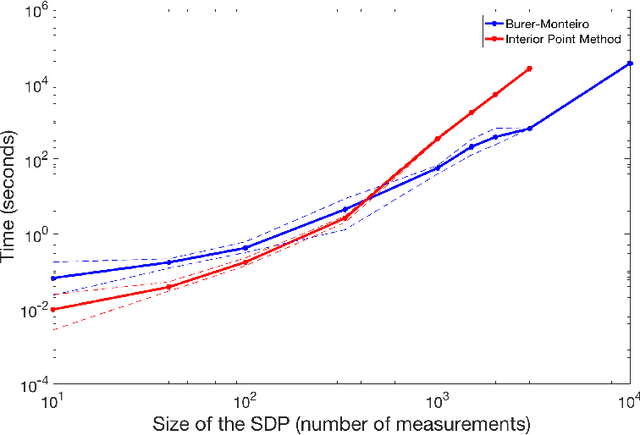Smoothed analysis of the low-rank approach for smooth semidefinite programs
Paper and Code
Jun 11, 2018
We consider semidefinite programs (SDPs) of size n with equality constraints. In order to overcome scalability issues, Burer and Monteiro proposed a factorized approach based on optimizing over a matrix Y of size $n$ by $k$ such that $X = YY^*$ is the SDP variable. The advantages of such formulation are twofold: the dimension of the optimization variable is reduced and positive semidefiniteness is naturally enforced. However, the problem in Y is non-convex. In prior work, it has been shown that, when the constraints on the factorized variable regularly define a smooth manifold, provided k is large enough, for almost all cost matrices, all second-order stationary points (SOSPs) are optimal. Importantly, in practice, one can only compute points which approximately satisfy necessary optimality conditions, leading to the question: are such points also approximately optimal? To this end, and under similar assumptions, we use smoothed analysis to show that approximate SOSPs for a randomly perturbed objective function are approximate global optima, with k scaling like the square root of the number of constraints (up to log factors). We particularize our results to an SDP relaxation of phase retrieval.
 Add to Chrome
Add to Chrome Add to Firefox
Add to Firefox Add to Edge
Add to Edge